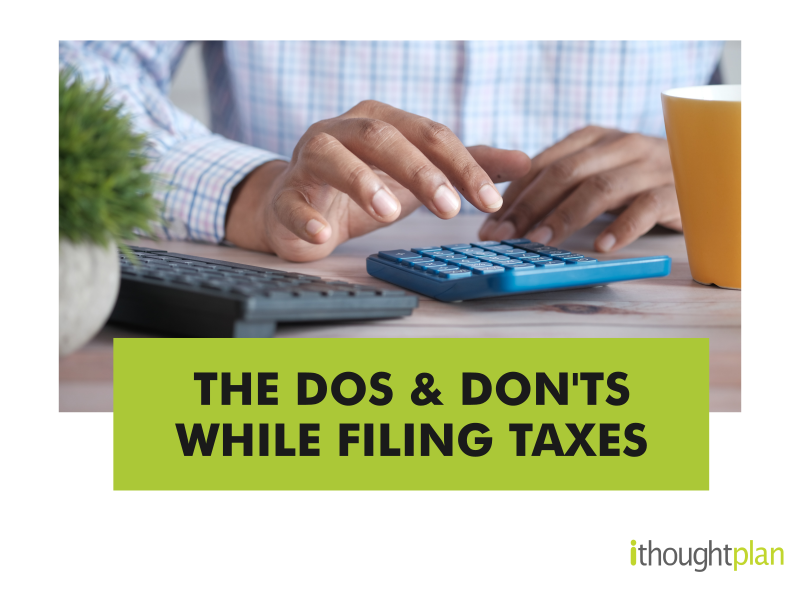
Tax planning plays an essential role in the financial growth story of every individual. Everybody needs to pay taxes, and a little bit of tax planning can go a long way in streamlining your taxes and could help receive considerable returns over a specific period involving minimum risk.
But, most of the benefit of Tax planning is lost as most people think about taxes only when they are nearing the date of filing returns. Many people send off their returns with little more than a hope that all is correct.
For our readers, worry not! We are here to help. Here are some simple Dos & Don’ts to follow when filing your taxes!
The Do’s
1. Keep Your Documents in an Orderly 1.Fashion
The first and most important thing you need to do while filing your income tax returns is to keep your documents ready. These will save some time and will help you to avoid mistakes while filing taxes. Documents Such as:
-
-
- PAN Number
- Bank Account details
- Form sixteen
- AIS
- TIS
- Investment Details
- Home Loan details
- Other income details
-
Even after the filling is done you need to keep the documents safe as you might need them in case your return is called out for scrutiny later.
2. Choosing the Tax Regime
The difference in slab rates is the primary distinction between the old and new tax regimes. One must conduct a thorough examination and comparison of tax outflow while deciding between the two regimes to determine which would be most helpful and fair to a taxpayer.
People who choose the old regime can continue to make use of the existing exemptions and deductions available in the income tax act. People who choose the new system must sacrifice most exemptions and deductions that were available under the old system.
All companies are required to ask employees if they want to choose the new tax regime. At the time of submitting the return, employees would still have the option of choosing between the tax regimes.
3. Choose the Correct ITR Form
The taxpayer needs to choose the correct ITR form based on their sources of income. Such as every salaried individual who has a taxable income and for whom taxes have been deducted at source by the employer receives Form 16. Salaried individuals also having income from the property and any other sources making a total income of up to Rs 50 lakh can use ITR 1.
4. Reveal All Sources of Income
Do not hide the salary from your previous employer or any other additional source of income while filing your returns.
5. Keep Your TDS Records
While filing your returns it is important to calculate your tax liability and how many deductions you can claim on. Having tax liability calculated will make it easy for you to file your Income Tax Return. You can take the help of online tax calculators to do it with accuracy.
The Don’ts
1. Do Not Provide Incorrect Information
Any incorrect information can cause a major delay in your ITR being processed. Hence, avoid making any mistakes while filing ITR. Details such as name as per bank records, postal address, email ID, PAN number, AADHAAR number, Bank account number, and IFSC code must be correct anyway.
2. Disclose Investments
Investmetns made in the financial year should be compulsorily disclosed while filing your ITR. You can claim the deduction based on your investments is also a must to gain benefits.
3. Don’t Miss Paying Advance Tax
It is compulsory to calculate the tax liability and pay self-assessment tax/advance tax before the end of the Financial Year.
4. Don’t Procastinate
You may make mistakes while filing at the last minute. So, try not to delay! In the worst-case scenario, you may even end up paying more taxes or some penal interest than necessary by leaving it to the last minute.
Filing income tax returns is complicated for a lot of people but going through these tips will make the process hassle-free for you.